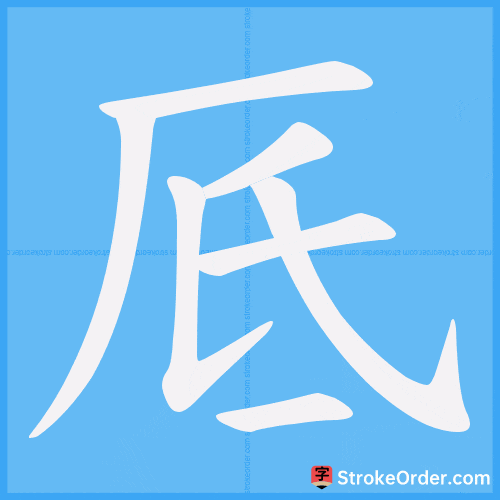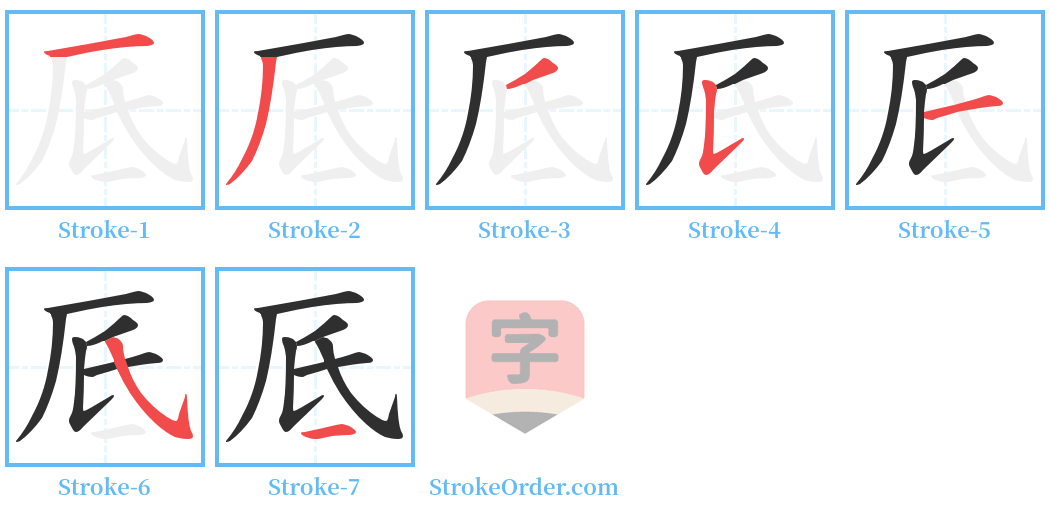厎 Stroke Order
Animated Stroke Order of 厎

Stroke Order Diagrams for 厎

Information of 厎
Pinyin
dǐ
Radical
厂
Strokes
7 strokes
Usage
★★
Definition
厎
1. Anciently the same as "砥", to grind; grinding stone.
2. Flat.
3. Final; to stop.
1. Anciently the same as "砥", to grind; the grinding pillar.
2. Flat: 平平 (average).
3. Final: 止止 (to stop).
Phono-semantic compound. The character consists of the radical "石" (stone) and "氐" (dǐ), which also serves as a phonetic component. "氐" means "to reach" and extends to imply "bottom." Together, "氐" and "石" denote "bottom stone" or "lower stone." The primary meaning is a whetstone, hence a flat character like a whetstone. — Song Dynasty, Shen Kuo, "Dream Stream Essays."
For example: 砥石 (whetstone); 砥磨 (to grind on a whetstone).
Phono-semantic compound. The character consists of the radical "石" (stone) and "氐" (dǐ), which also serves as a phonetic component. "氐" means "to reach" and extends to imply "bottom." Together, "氐" and "石" denote "bottom stone" or "lower stone." The primary meaning is a whetstone, hence a flat character like a whetstone. — Song Dynasty, Shen Kuo, "Dream Stream Essays."
For example: 砥石 (whetstone); 砥磨 (to grind on a whetstone).
(*Quoted from the explanation in traditional Chinese dictionaries)
(Verb)
1. To stabilize. "广韵·上声·止韵": "厎, to stabilize."